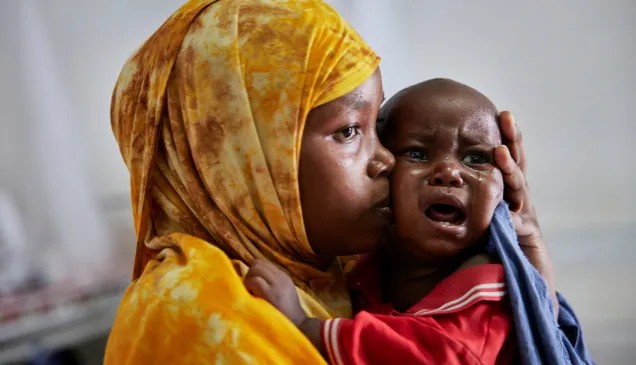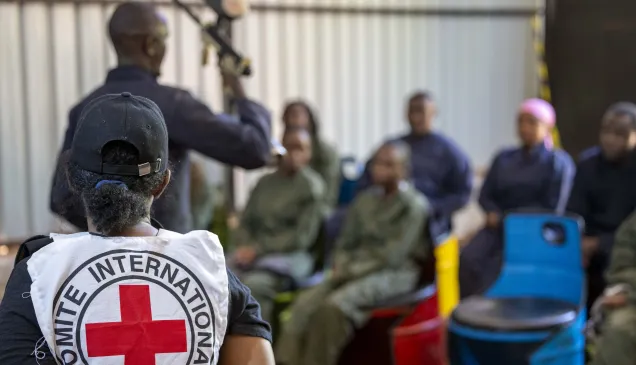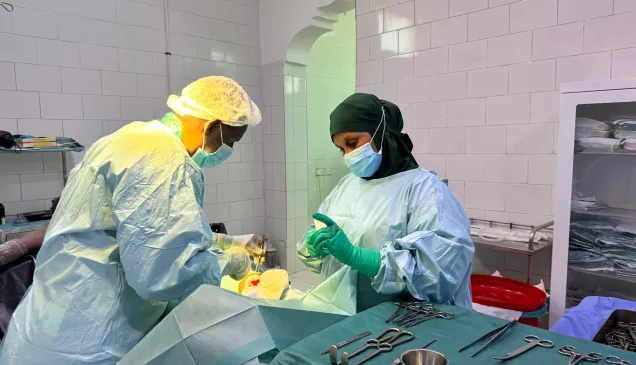Gelle Mohamud is a technician serving one of the boreholes in Guriel. The borehole provided water to thousands of people in the area until its two generators were damaged by the fighting.
Somalia: caught between the drought and the fighting people in Guriel have nowhere to run
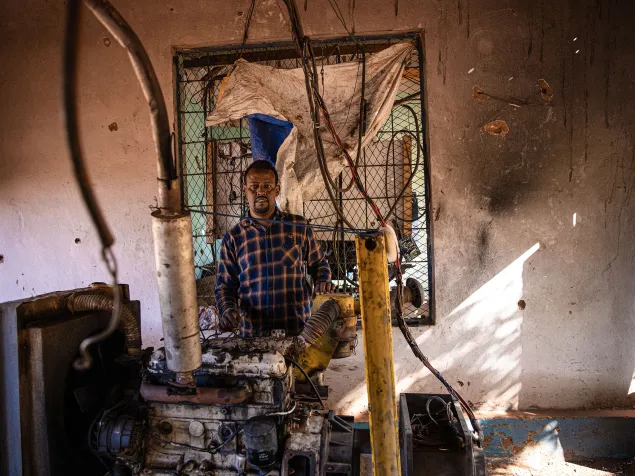
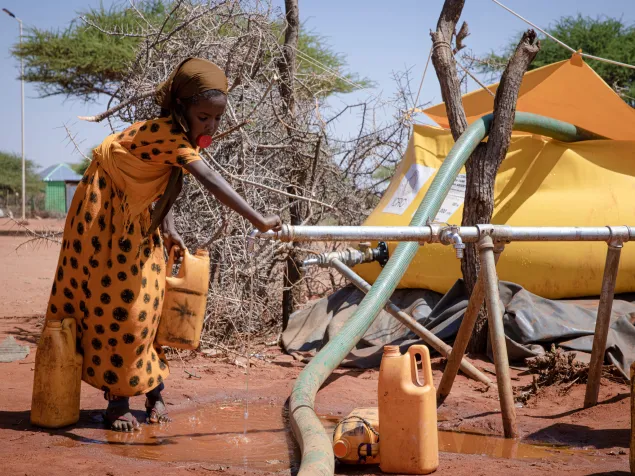
With the worsening drought, people living in the settlements don’t have enough water. ICRC water trucking is a temporary solution to respond to the emergency.
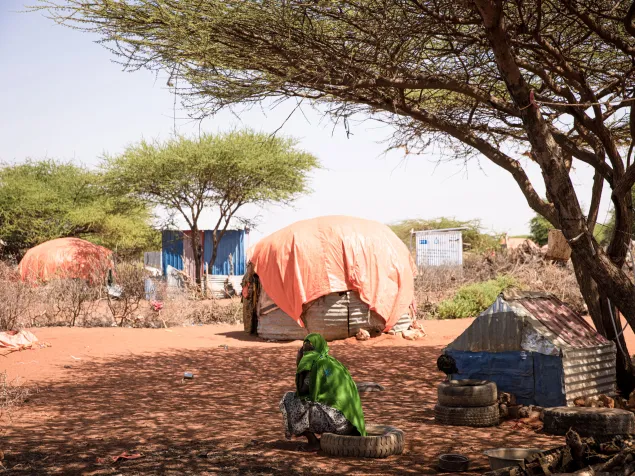
Some displaced people have been living here for years, after they fled droughts in their regions of origin. Others have arrived recently, fleeing fighting in Guriel.
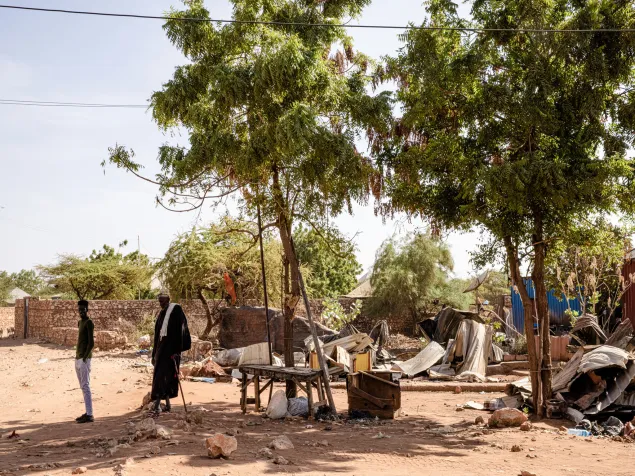
Signs of destruction are still visible around Guriel and small businesses remain closed.
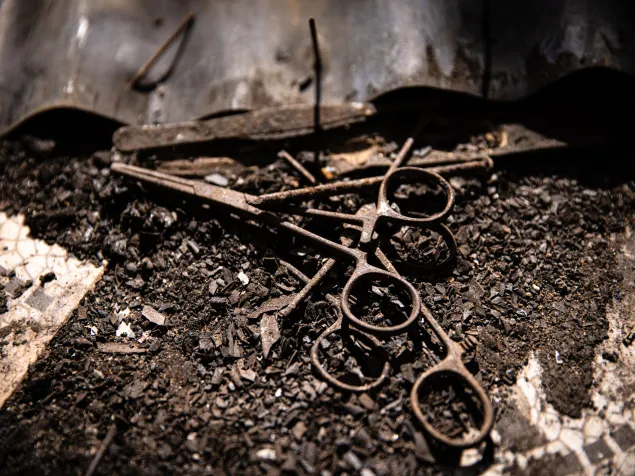
Kulmiye hospital was a referral hospital, that offered outpatient, inpatient, maternity and immunization services to people from surrounding villages within the range of over 100 km.
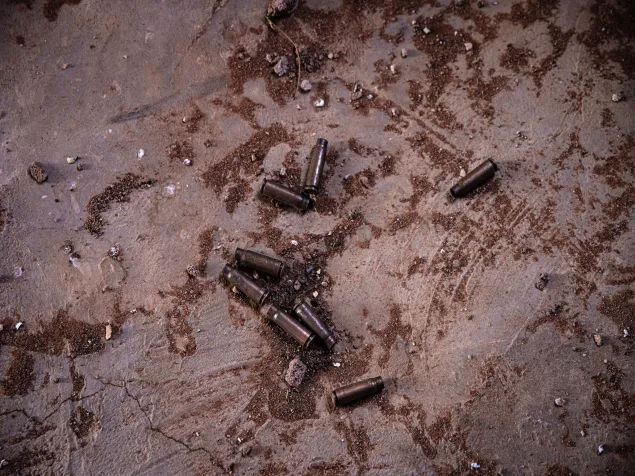
Scars left by the fighting remain in Guriel, but it is the drought that weighs heavily on people’s minds.
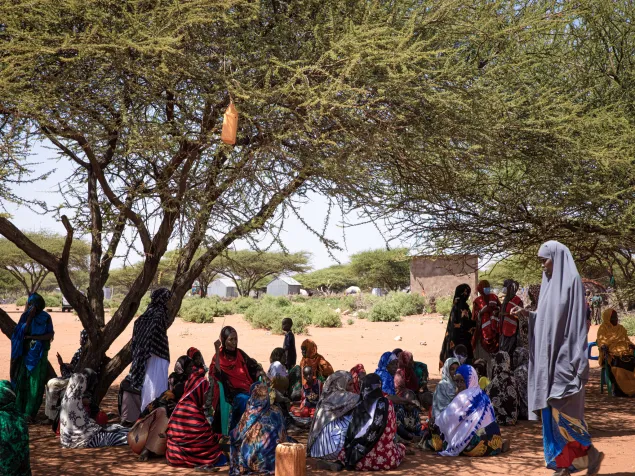
Thousands of people live in improvised settlements on the outskirts of Guriel, they lack access to essential services, like food, water and healthcare.
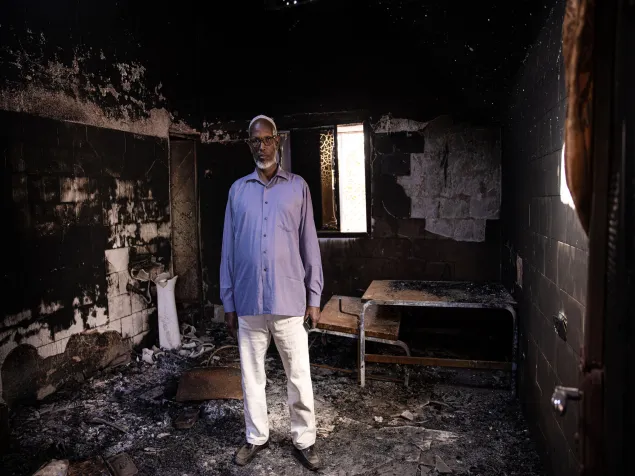
“When we were in the emergency handling wounded patients, that's when the disaster happened and the entire hospital got burnt,” says Dr. Ali Tarabi, the chairman of Kulmiye Community hospital.
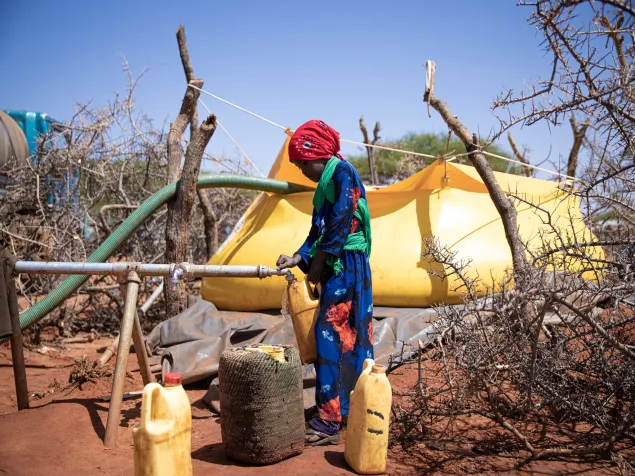
More than 80 percent of Somalia is estimated to be experiencing severe drought conditions.
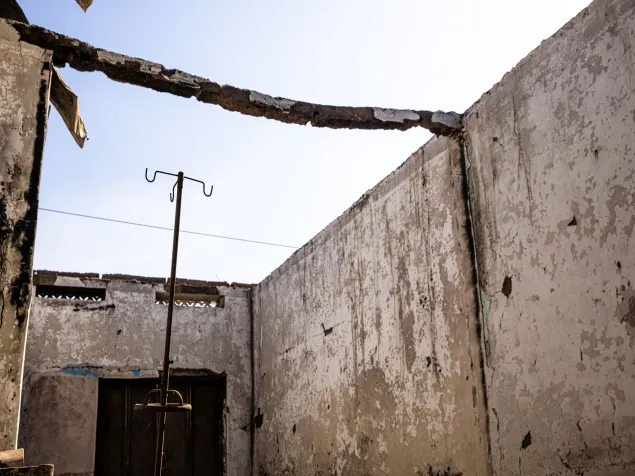
“When we were in the emergency handling wounded patients, that's when the disaster happened and the entire hospital got burnt,” says Dr. Ali Tarabi, the chairman of Kulmiye Community hospital.
"You can run away from fighting, but you can't escape from the drought. We have missed three rounds of rain already. There is not enough food, not enough water," says Deeko Adan Warsame, chair of the women's council of Guriel, a small energetic woman, wearing a red-striped hijab.
More than 300,000 people have been affected by the worsening drought in Somalia's Galgaduud region. Last month the Federal Government declared a state of emergency, as thousands leave their homes in search of food, water and pasture. In addition to the worsening drought, Guriel, a town of some 100,000 inhabitants in central Galgaduud, has seen an intensification of conflict. At the end of October, heavy fighting broke out between Somali National Army and Ahlu Sunnah Wal Jama'a group, killing dozens and forcing some 100,000 people to flee to the neighboring villages.
Intense shelling damaged several buildings in Guriel, including its main hospital. The Kulmiye Community hospital, the second largest in town, was destroyed in a fire. Kulmiye hospital was a referral hospital that offered outpatient, inpatient, maternity and immunization services to people from surrounding villages within the range of over 100 km.
"This morning, a number of people arrived at the hospital thinking it still exists. They had not heard the news," said Dr. Ali Omar Tarabi - Chairman, Kulmiye Hospital Board. The pressure on the remaining health facilities has considerably increased.
Hundreds of thousands of people are staying in makeshift settlements on the outskirts of Guriel town. Some of them were displaced by the recent fighting, while others came to the area seeking pasture, as drought became more severe. All the displaced people live in extremely difficult conditions, lacking access to the essential services, like food, water and healthcare. "To respond to these needs, we provided water trucking to displaced people in 17 villages", said Mohamed Sheikh Ahmed, Head of ICRC office in Galmudug. "Together with the Somali Red Crescent Society, we deployed a mobile health team that is providing essential health care services to six villages".
Life is slowly returning to Guriel, but many small businesses remain closed and it will take time and effort to repair the damage, especially while the region is grappling with the consequences of the drought.

